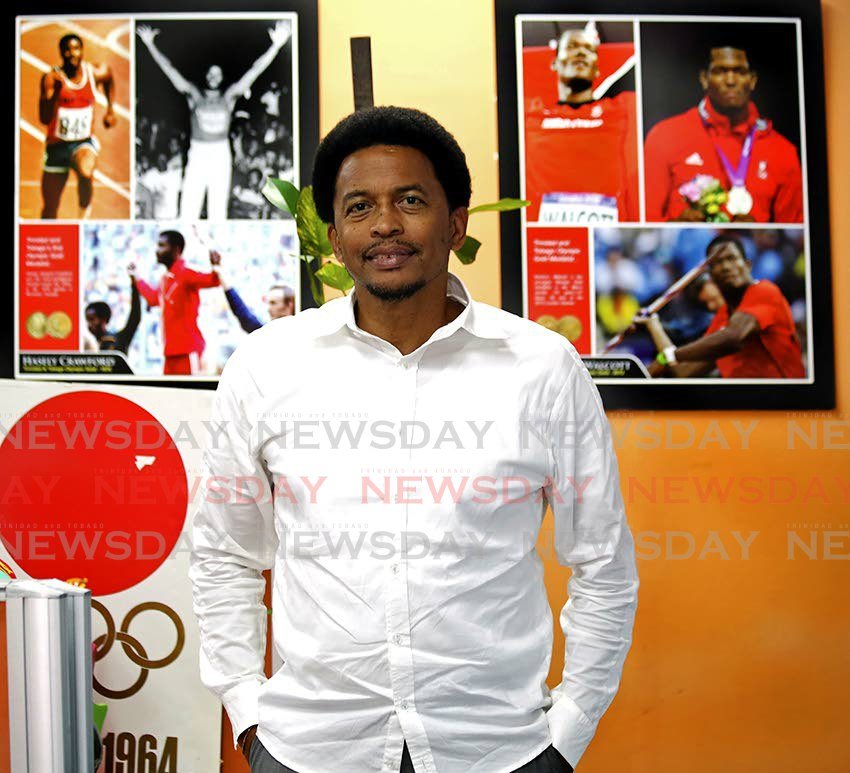TT Olympic Committee (TTOC) president Brian Lewis has questioned the process taken by the International Olympic Committee (IOC) Athletes’ Commission to continue prohibition of peaceful protest inside stadiums, at ceremonies and on podiums at the Tokyo Games.
Athletes will not be allowed to take a knee or protest against human rights abuses at the July 23 – August 8 games after two-thirds, of 3,547 athletes from 185 countries and all 41 Olympic sports, polled by the IOC said they supported a ban remaining in place.
The IOC had come under sustained pressure to relax Rule 50 of the Olympic Charter, which stops athletes from demonstrating on the podium, the field of play or at opening and closing ceremonies, after the global anti-racism protests last year.
However, the IOC will keep the ban after a survey of the 3,547 athletes found 70 per cent believed the field of play and official ceremonies were not an appropriate place for protest. Altogether, 67 per cent supported a ban on podium protests.
The Athletes’ Commission survey also said that they would send instances of protest action to the legal commission of the IOC for clarity on the sanctions.
Slogans such as “Black Lives Matter’” will not be allowed on athlete apparel at Olympic venues, though it approved using the words “peace”, “respect”, “solidarity”, “inclusion” and “equality” on t-shirts.
Lewis sees this decision by the commission as an infringement on human rights.
“It says something about the process and the trust that people have in the process. You have nearly 15,000 athletes between the Olympic Games and Paralympics; usually 11,000 for the former and 4,000 for the latter.
“Only just over 3,500 athletes responded to a survey? Seventy per cent said that rule 50 shouldn’t be changed. That’s less than 2,500 athletes out of 15,000? Something doesn’t sound too right.
“Why is it that more athletes didn’t do the survey? Because they (Athletes’ Commission) felt like it wouldn’t make a difference. That is almost an indictment on the process. The majority of athletes that responded, what continents did they come from?” Lewis questioned.
The Athletes’ Commission recommendation on Rule 50 was also fully endorsed by the IOC executive committee. Since this announcement, on April 22, several national Olympic committees (NOCs) have voiced their concerns against the decision.
In December 2020, the United States Olympic and Paralympic Committees have since said they will not discipline any of their athletes if they choose to peacefully protest. The Canada and New Zealand Olympic Committee shared similar sentiments.
Additionally, some international federation chiefs, including World Athletics’ president Sebastian Coe, have said athletes should have the right to make gestures of political protest during the Games.
EU Athletes – a federation of European professional athletes’ associations and unions representing more than 25,000 athletes – also said that they are “deeply concerned by the decision taken by the IOC and believe that the consultation process and the Rule 50 itself are not compatible with the human rights of athletes.
Lewis added, “Is it that, that’s the level of apathy they (Athletes’ Commission) have about the issue of racial injustice and Black Lives Matter? That level of involvement in the survey reflects apathy.
“It reflects a possible lack of a feeling that it wouldn’t make a difference; the decision was already made that it was an exercise in futility.
“If it is you are telling me that that is the only level of interest, maybe that is why the world is the way it is, filled with the continued existence of systemic racism, sexism, racial and sexual discrimination and gender inequality.
“It is not an issue of being political; it is an issue of human rights.”
While Lewis has been vociferous in his fight against systemic racism, inequality and sexism in sport, he said many other NOCs are sceptical to speak out on these issues.
Owing to his bravery to speak up, Lewis said he continues to receive several supportive messages from the other NOCs who silently champion the fight for the cause.
He continued, “The expressions of support have continued via WhatsApp. Going against what people may perceive as the grain takes courage, strength and conviction.
“I don’t have any feelings of resentment or disappointment because colleagues who may share a difference view don’t, or are afraid to say it publicly. I have no hard feelings towards them.
“But, at the end of the day, I don’t think this is a matter the TTOC should be silent about. Anyone who has experienced racism while travelling outside of the region in Europe and other parts of the world, silence is not golden.”
However, athletes who make political or social justice protests at the Tokyo Olympics were promised legal support by a global union and an activist group in Germany.
Speaking to Associated Press, Brendan Schwab, executive director of the World Players Association union, said that any athlete sanctioned at the Tokyo Olympics will have the full backing of the World Players.
The independent group representing German athletes pledged legal backing for its national team.
In a statement, another athlete group, Global Athlete, encouraged athletes to “not allow outdated ‘sports rules’ to supersede your basic human rights.’” It said the survey’s methods were flawed.

